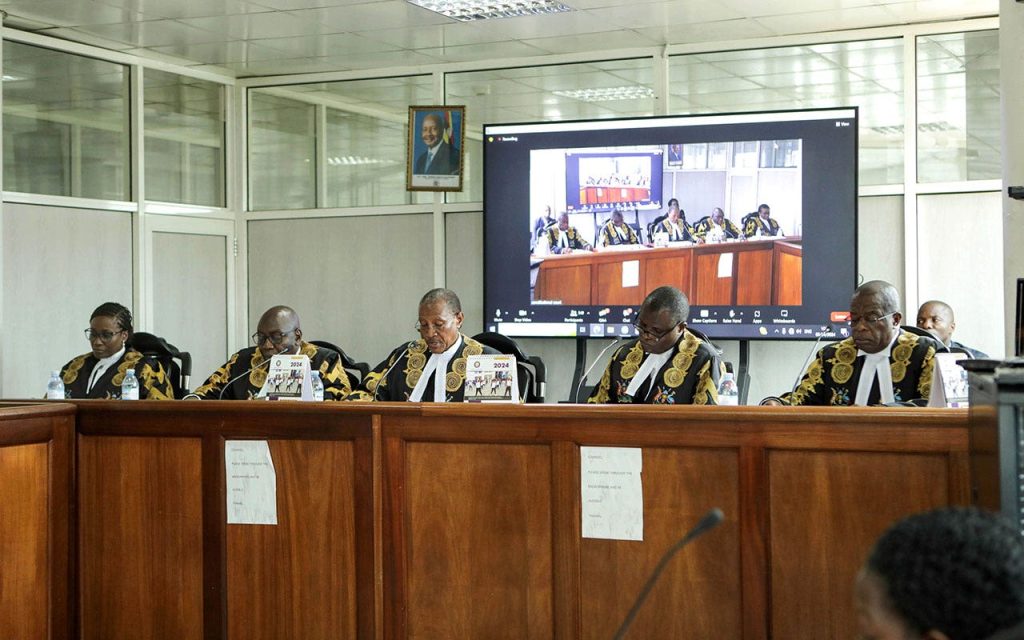The Constitutional Court of Uganda has upheld an anti-gay law that allows for the death penalty in cases of “aggravated homosexuality.” President Yoweri Museveni signed the bill into law in May last year, and the law has received support from many in Uganda but condemnation from rights activists and other countries abroad. Despite challenges from activists in court, the judges ruled that the law was legally passed by parliament and does not violate the constitution, leading to the decision to uphold it. The court did rule, however, that members of the gay community should not face discrimination when seeking medical treatment.
The law defines “aggravated homosexuality” as cases involving minors or other vulnerable individuals, or cases where the perpetrator is infected with HIV. Those convicted of “attempted aggravated homosexuality” can face up to 14 years in prison, with “attempted homosexuality” punishable by up to 10 years. Homosexuality was already illegal in Uganda under a colonial-era law that criminalizes sexual activity “against the order of nature,” with the punishment being life imprisonment. The United Nations, along with U.S. President Joe Biden and the World Bank, have expressed deep concern over the law, citing it as a violation of universal human rights and a hindrance to economic growth in Uganda.
Activists who challenged the anti-gay law in court, led by lawyer Nicholas Opiyo, have vowed to appeal to the Supreme Court. They view the decision by the Constitutional Court as a temporary setback in the broader fight against discrimination and prejudice towards the LGBTQ+ community. The petitioners argue that the law needs to be entirely overturned, rather than having its different components struck down. The case against the law highlighted issues of cultural bigotry and human rights violations, with calls for the Supreme Court to take action on the matter.
Homosexuality is criminalized in more than 30 of Africa’s 54 countries, with some viewing it as behavior imported from abroad rather than a sexual orientation. This perspective contributes to the ongoing challenges faced by LGBTQ+ individuals across the continent, with discrimination and persecution being widespread. The continued enforcement of anti-gay laws, such as the one in Uganda, hinders the progress towards equality and human rights for all individuals, irrespective of sexual orientation. The international community plays a crucial role in advocating for the rights of LGBTQ+ individuals and calling for the repeal of discriminatory laws like the one in Uganda.
The debate over LGBTQ+ rights in Africa underscores the complex intersection of culture, law, and human rights in the region. While some countries are making progress towards LGBTQ+ acceptance and equality, others continue to enforce harsh anti-gay laws that perpetuate discrimination and violence. The case of Uganda’s anti-gay law and the court’s decision to uphold it highlights the challenges faced by activists and community members advocating for change. The fight for LGBTQ+ rights in Africa is ongoing, requiring sustained efforts from both domestic activists and international allies to promote tolerance, respect, and equality for all individuals, regardless of sexual orientation.


